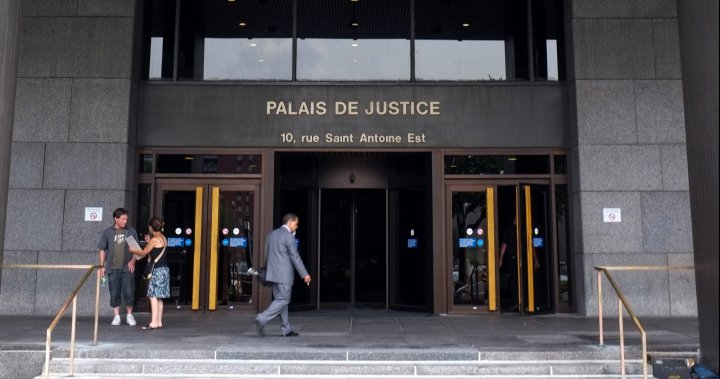General News
Quebec judge worries changes to language law could lead to unfair court delays – Montreal

A Quebec court judge is warning that the province’s controversial language law, known as Bill 96, could lead to unreasonable delays in criminal trials.
As of June 1st, all Quebec court judgements rendered in English will have to be immediately translated into French before they are handed down.
It’s one of the changes made to Quebec’s French language charter, following the adoption of Bill 96, but only comes into effect next month.
In a 17-page decision handed down earlier this week, Quebec Judge Dennis Galiatsatos warns this could lead to unfair and unreasonable delays and he has determined he will have to decide on its constitutional validity.
“It is uncontroversial that the provincial government may automatically provide – even mandate – the translation of every English decision to French for the benefit of the population,” Galiatsatos writes. “This only becomes problematic where, in doing so, it imposes a rigid timeline which has the effect of obstructing the basic operation of the criminal process, which falls under federal jurisdiction.”
According to Galiatsatos, there is an urgency to determine the validity of the new language requirement because it could have an impact on an upcoming trial.
The trial in question is that of Christine Pryde, a 32-year-old West Island woman who is accused of impaired driving in the 2021 death of Irène Dehem, a cyclist who was struck and killed in Pierrefonds.
Galiatsatos writes translating his decision could mean the accused and Dehem’s family, could have to wait several additional weeks or months to find out his judgement.
“All the while, all interested parties will be denied the closure that they have all been eagerly awaiting since the fatal 2021 collision,” he writes.
The email you need for the day’s
top news stories from Canada and around the world.
Galiatsatos admits Pryde’s defence does not want to contest the constitutionality of the language law, but he writes the defence may use it as part of its request for a stay of proceedings due to unreasonable court delays.
The Crown Prosecutor also remains neutral on the issue, Galiatsatos writes, but suggests the judge render his decision orally first, to avoid any unnecessary delays.
‘Simply a non-existent problem,’ attorney general says
Université Laval Constitutional Law Professor Patrick Taillon feels Galiatsatos’ approach is highly problematic, especially given neither the crown nor the defence seem to want to go there.
“It appears to be a bit partisan in spirit. It appears to be a bit militant in spirit,” Taillon said in an interview. “The judge has come out of his passive posture — one of a judge that is neutral, impartial, and independent, marked by a duty of restraint.”
Taillon also points to a 2020 Supreme Court ruling, that determined the delays between the end of a trial and the rendering of a judge’s decision do not apply in a Jordan application for unreasonable court delays.
Taillon also said Galiatsatos failed to mention the language law uses the notwithstanding clause to shield it from the application of the Canadian Charter.
“The supreme court’s ruling is very clear: these delays do not count,” Taillon said. “So the concerns of the Quebec judge are unfounded.”
The office of French Language Minister Jean-François Roberge agrees.
“It’s important to highlight the application of the Jordan ruling does not apply to the deliberation of a judge,” the minister’s office said in a statement to Global News. “Since the adoption of Bill 96, we have been working with the courts to develop an efficient translation system.”
But some criminal defence lawyers are still concerned. Eric Sutton, a defence attorney in Montreal, says translation always takes time and he worries about delays.
“It’s somewhat discriminatory,” Sutton said. “It means that English-speaking accused will, if they’re expecting a written judgement, will not have it in the same time frame as a French-speaking accused.”
Sutton also believes there is still in an argument to be made for unreasonable court delays, despite that 2020 ruling.
“Once the judgement is ready, if it can’t be remitted to the parties because of this requirement to translate, that’ll have to be revisited by the Supreme Court,” Sutton said. “Is that also exempt from the Jordan calculation? I think it might not be.”
Galiatsatos has also asked the Attorneys General of both Quebec and Canada to come up with official positions on the matter by May 14th.
According to Galiatsatos’ decision, so far, the Quebec Attorney General is arguing the judge has no place raising constitutional questions on his own, without the support of either the crown or prosecutor.
The Attorney General of Canada agrees, and also argues this is “simply a non-existent problem that the Court has imagined out of thin air,” Galiatsatos’ document states.
Source
Disclaimer: No copyright infringement intended. All rights and credits reserved to respective owner(s).

























